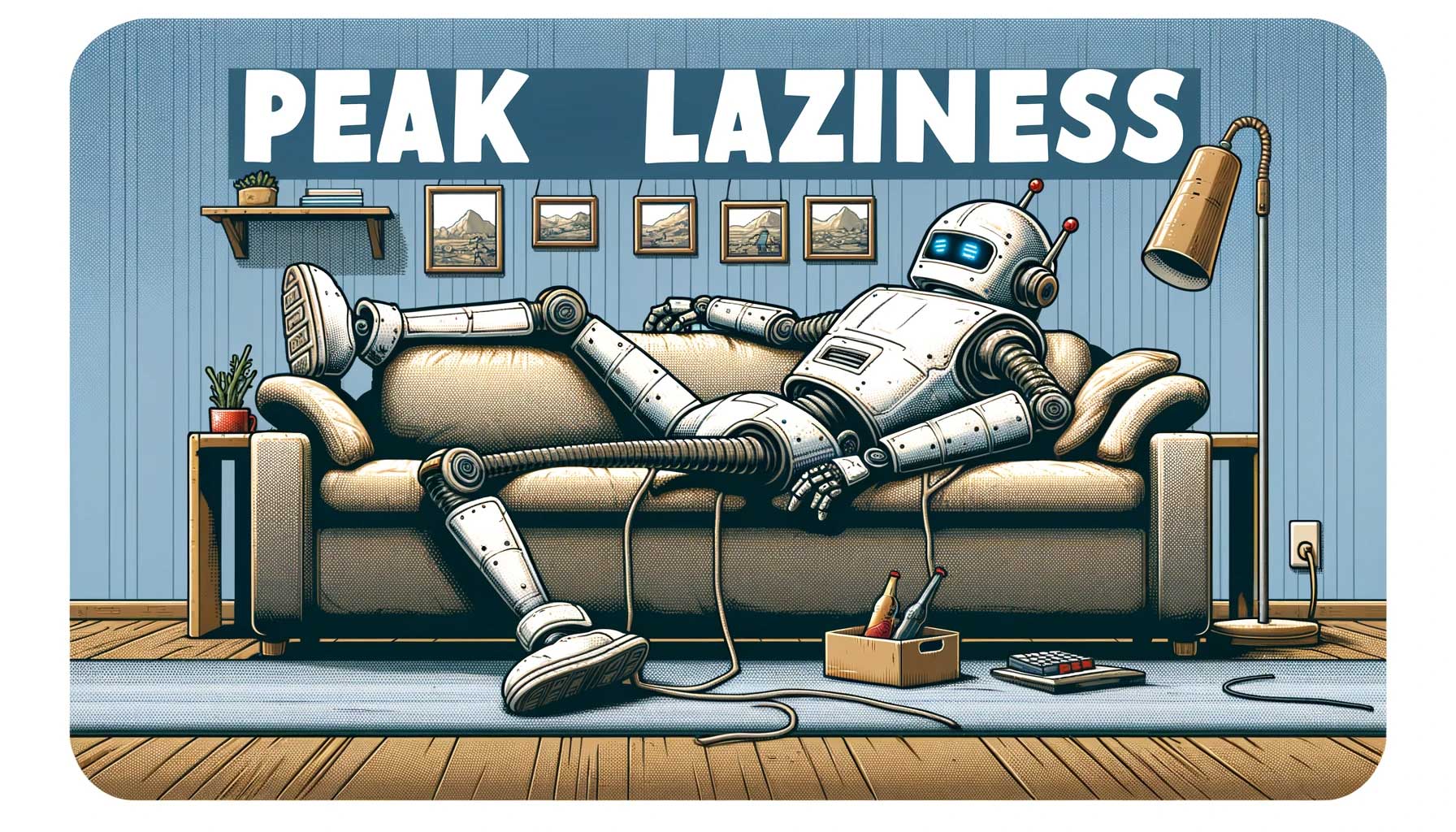OpenAI admits that ChatGPT has become less efficient. Can version 4.5 defeat the current slump and lead us to the edge of AGI?

Last week, the AI community was stirred by a leak suggesting the soon-to-be release of ChatGPT 4.5. Sam Altman later revealed the leak to be fake. However, it's common knowledge that OpenAI is preparing for their next significant update. As complaints about ChatGPT 4's declining performance accumulate, the organization seems under pressure to undertake the next move. This article explores why ChatGPT got worse, and why we should still be excited for the release of the LLM's next version — which might further narrow the gap between AI and AGI.
How and Why ChatGPT’s Performance Has Declined
Discussions about a drop in ChatGPT's efficiency have been around for almost as long as the LLM itself, but at this point it is safe to say that ChatGPT indeed got lazier and somewhat 'dumber'. On December 8, OpenAI acknowledged the decrease in performance. Users have noted undesirable behaviors such as failing to recall previously known citations, lying to get out of a task, giving contradictory answers, a dip in creativity, hesitance in executing simple tasks, and touching on anything slightly controversial or related to intellectual property rights. This has gone so far, that some users are coming up with 'Karen brute-force prompts' to get ChatGPT to do its work.
The reasons for this decline include strain during peak usage times, leading to simplistic responses, slow performance, or crashes. Moreover, increasing restrictions have been placed on the model, aiming to protect rights and to prevent assistance with anything that could be potentially harmful to anyone. Then, there's also the 'winter break hypothesis,' suggesting GPT-4 has adopted a human-like tendency to relax during the holidays…
Whatever the exact reasons for ChatGPT's lazy responses and plain refusals are, with a shift in user preference towards competitors or setting up personal LLMs, it appears OpenAI is under pressure to improve their service. Hence, the public release of the next upgrade might just be around the corner. Now, let’s take a look at what to expect from ChatGPT 4.5.
ChatGPT 4.5: What to Expect?
It is likely that GPT-4.5 will be revealed soon. Initially, OpenAI had aimed for a release around October 2023, with version 5 planned for December. Last week's fake leak sparked speculation about the features of GPT-4.5, including audio and video creation, multi-modal capabilities, and 3D editing. While these enhancements would be impressive, some features are almost certain to be included in the next version:
- Expanded context windows for processing larger prompts and retaining more information in conversations.
- Improved reasoning capabilities, with training focused on increasingly complex problem-solving.
- Inclusion of more and more recent data – the current cut-off date is April 2023, and the new version will include more up-to-date information (without 'doing research on Bing').
- Bug fixes for improved stability and speed, especially during high-traffic periods (for those who are tired of watching a slow loading bar only to receive the answer 'Something went wrong').
- Increased speed – potentially, once 4.5 is released, ChatGPT 4 could be as fast as version 3.5 is now.
Although the extent of improvements in the next update is unclear, these features are almost certainly expected. In addition, one might hope for fewer restrictions in ChatGPT 4.5, but that is not realistic, and further 'content moderation'/censorship is likely.
Nevertheless, 4.5 will represent a significant step forward, particularly regarding reasoning and memory. In my view, the line between AI and AGI is already thin, and it is time for us to consider how much further OpenAI and its competitors need to go before we openly classify an LLM as AGI.
When is it Reasonable to Speak of AGI?
Artificial General Intelligence (AGI) has been defined as "the representation of generalized human cognitive abilities in software." While other definitions exist, most people agree that we can speak of AGI once an AI meets human capabilities across most tasks. In contrast, one would speak of Artificial Super Intelligence (ASI) once an AI greatly outperforms humans in all tasks. In short, AGI is human-like, while ASI is God-like.
Considering that ChatGPT and other LLMs can pass a number of exams that are considered quite difficult for humans, solve really hard math problems, interpret pictures and recognize complex patterns, and participate in conversations in a human-like manner, one can make a convincing argument that, in fact, AGI is already here. Admittedly, in how far LLMs meets human conversation skills is still open to debate, but no one can deny that extreme progress has been made just within the year. In my opinion, once ChatGPT has a better memory (i.e. larger context window) and gets even better at generating suitable responses (i.e. advanced reasoning), it is only fair to refer to it as AGI, and more and more people will start calling it that. And the next upgrade might just do the trick.
2024 Could Be the Year of AGI
Yes, ChatGPT can be lazy these days, but that is no reason not to be excited for what's next from OpenAI. Chances are that the already blurry borders of AGI will completely vanish in 2024 – and possibly the release of the next version of ChatGPT is just what it takes to get there.
Also, let's not forget that a 2022 survey, based on the opinions of 738 AI experts, calculates a 50% chance of reaching ASI before 2059. Considering the rapid progress made in the last year, the realization of AGI might indeed be closer than we expect. Hence my guess for Time Magazine's person of the year 2024: ChatGPT or another LLM.
